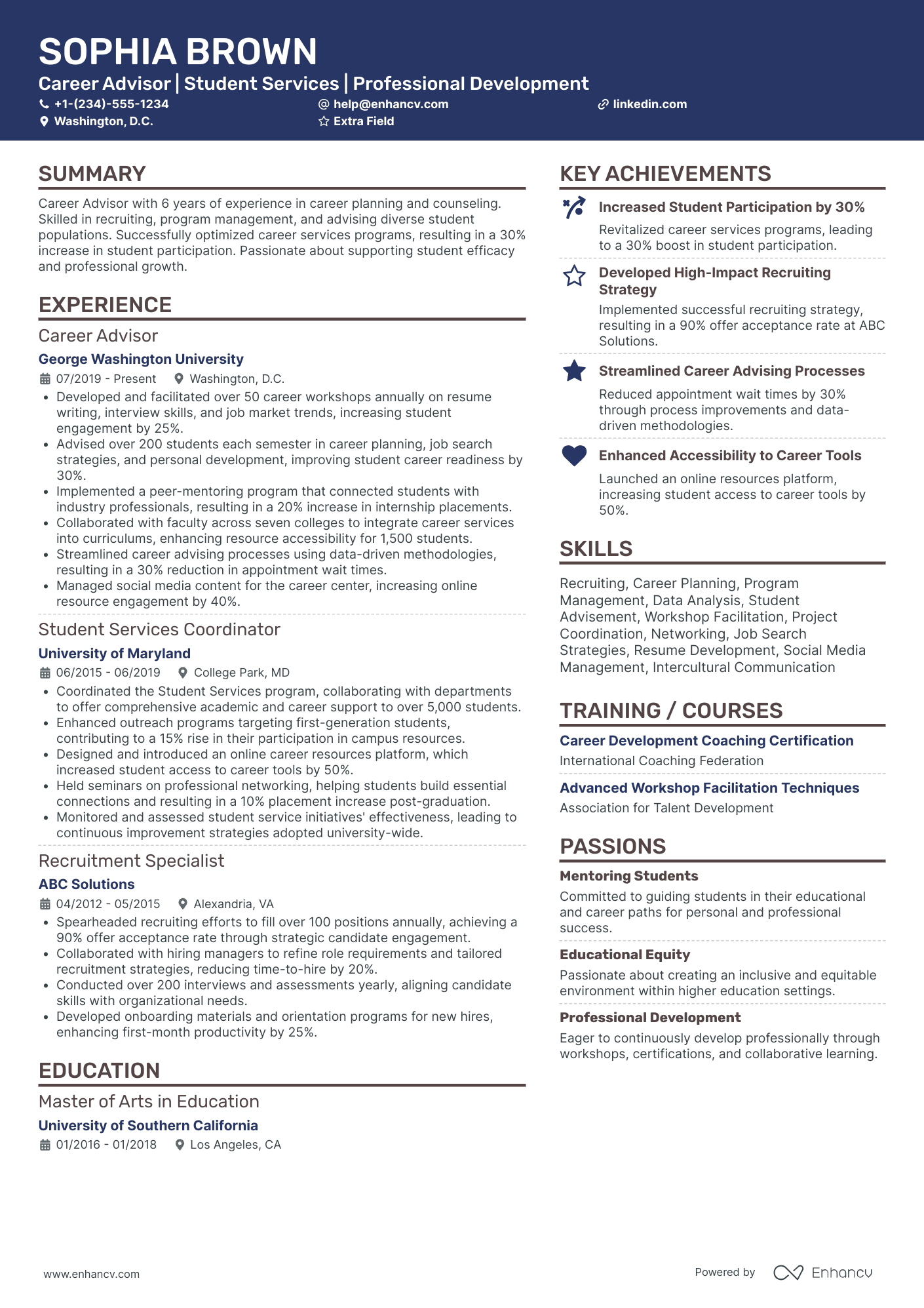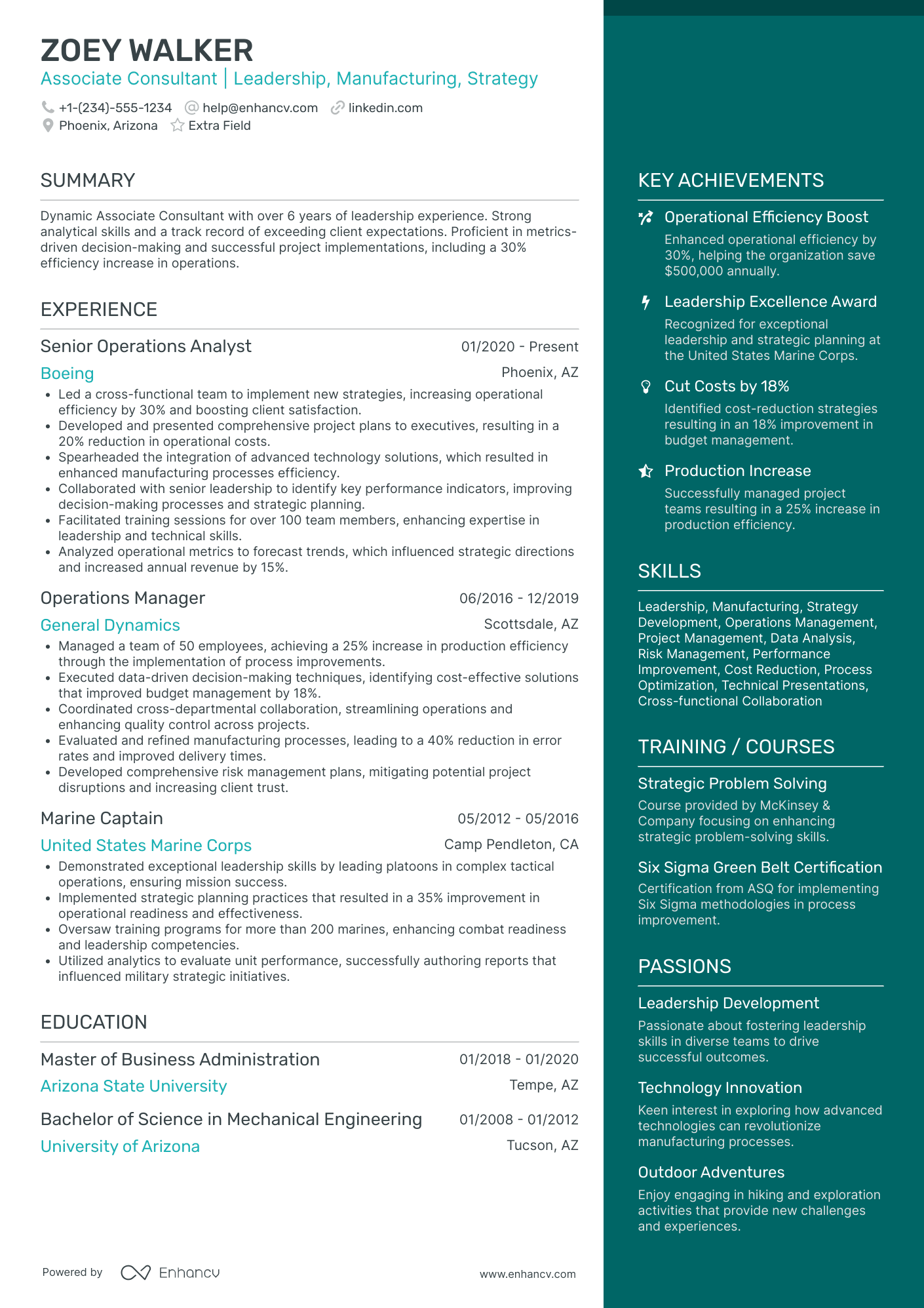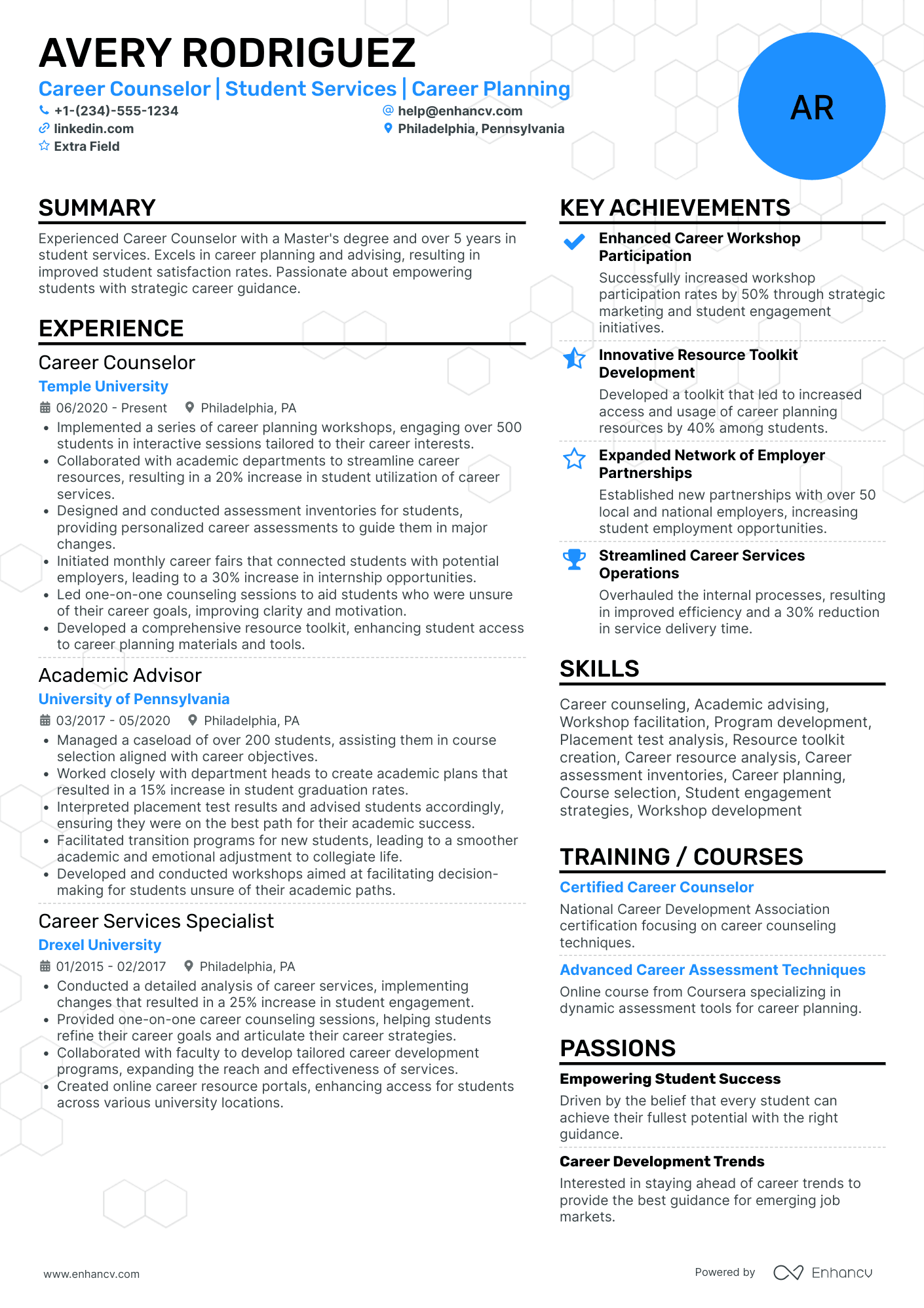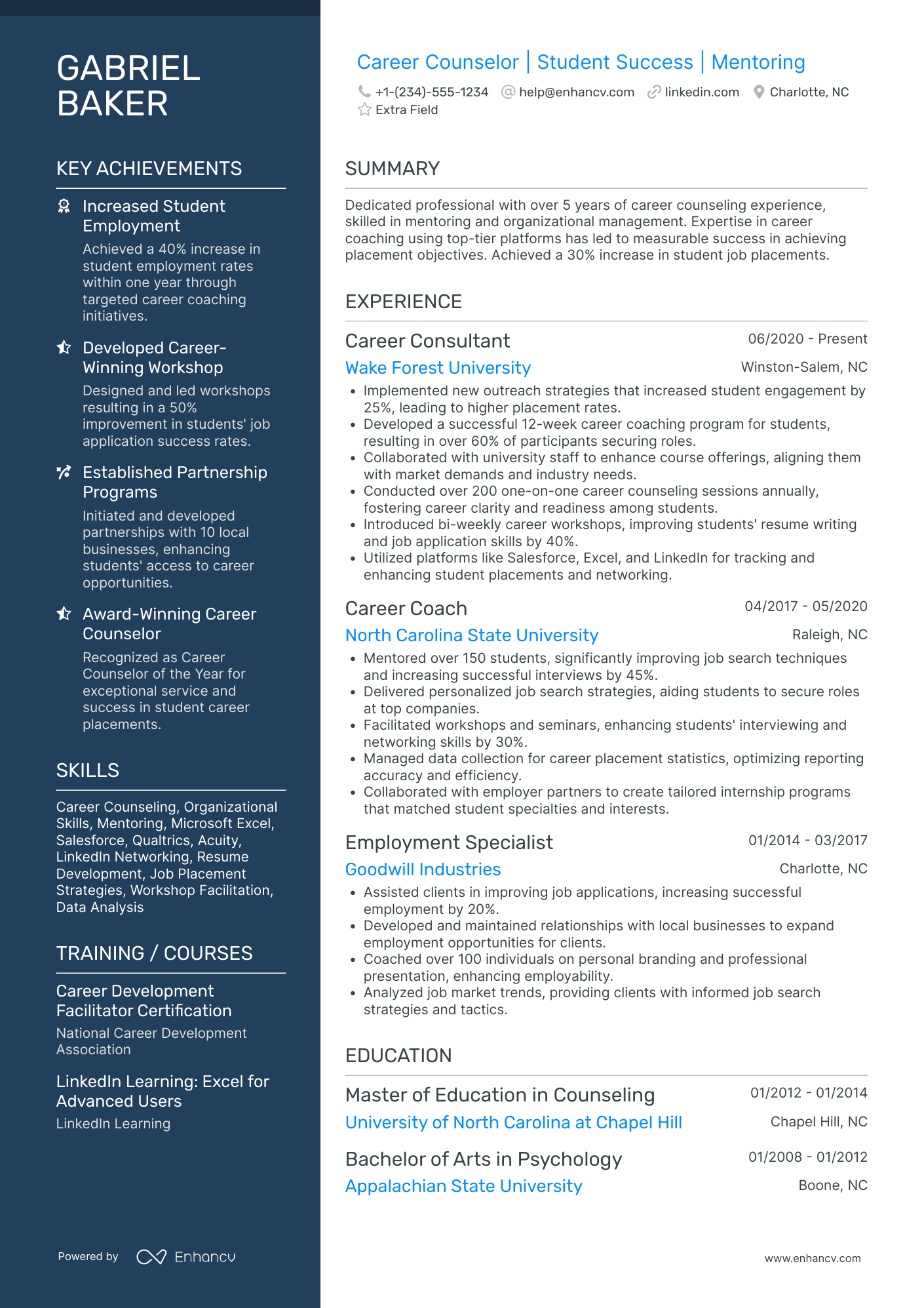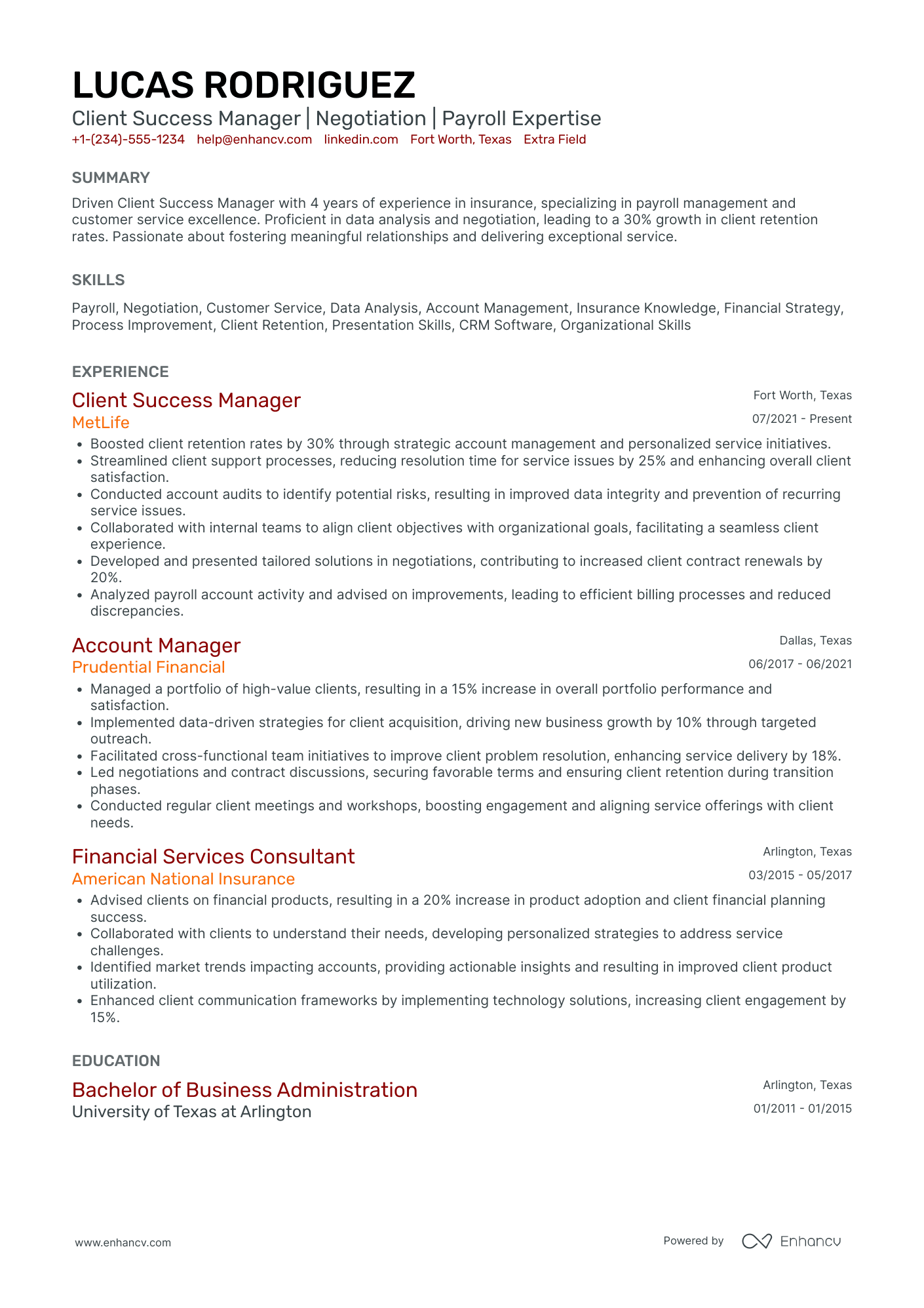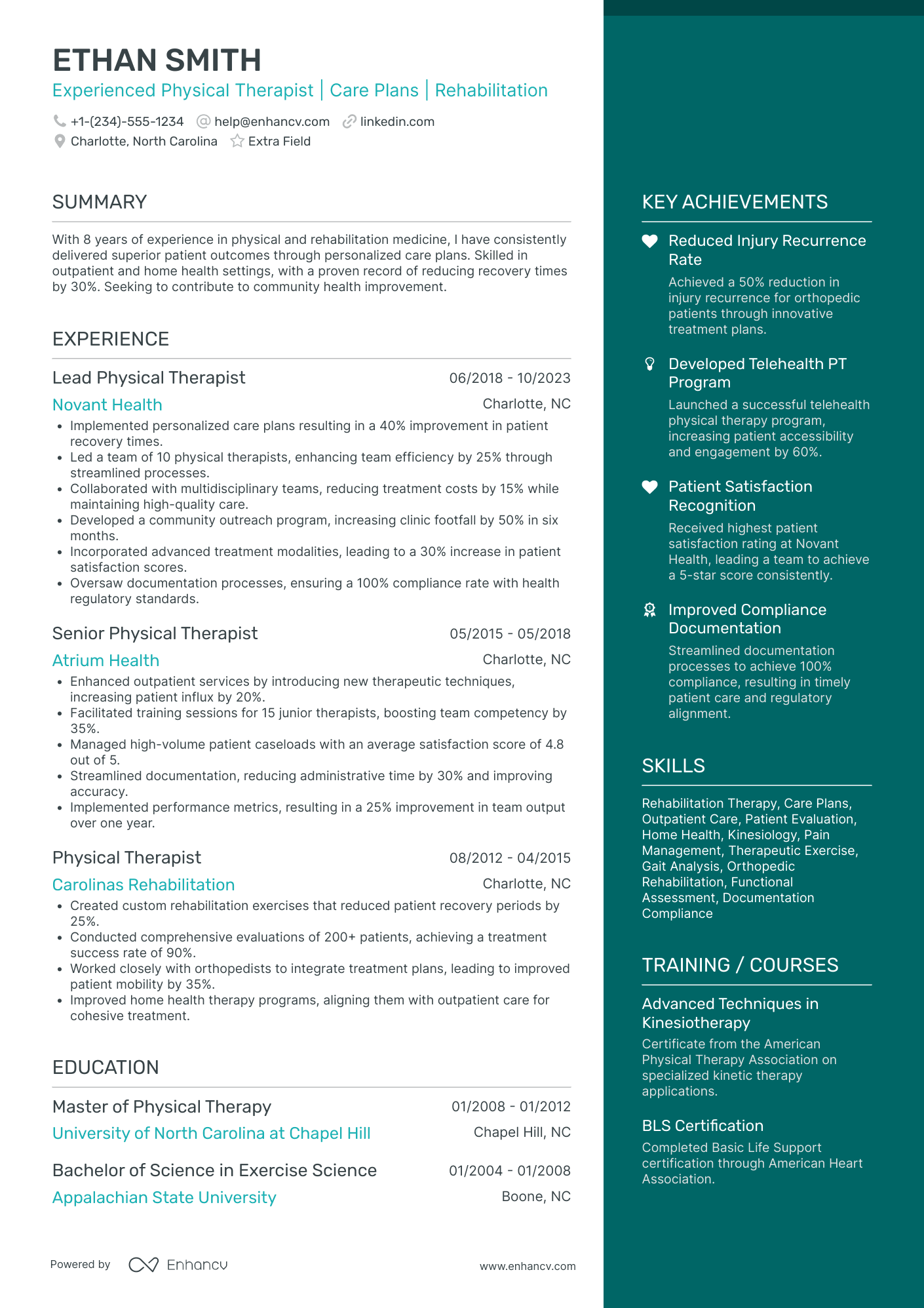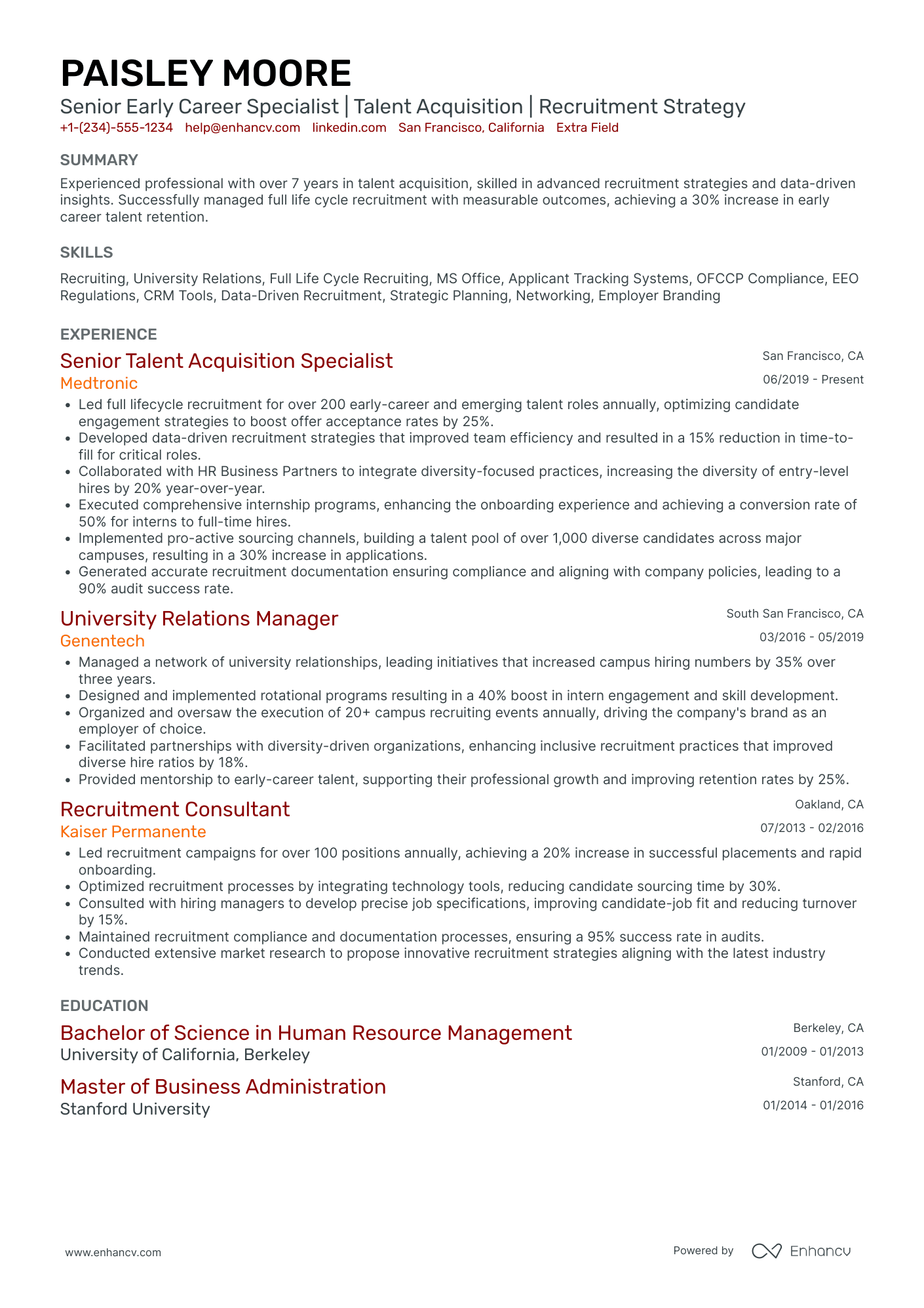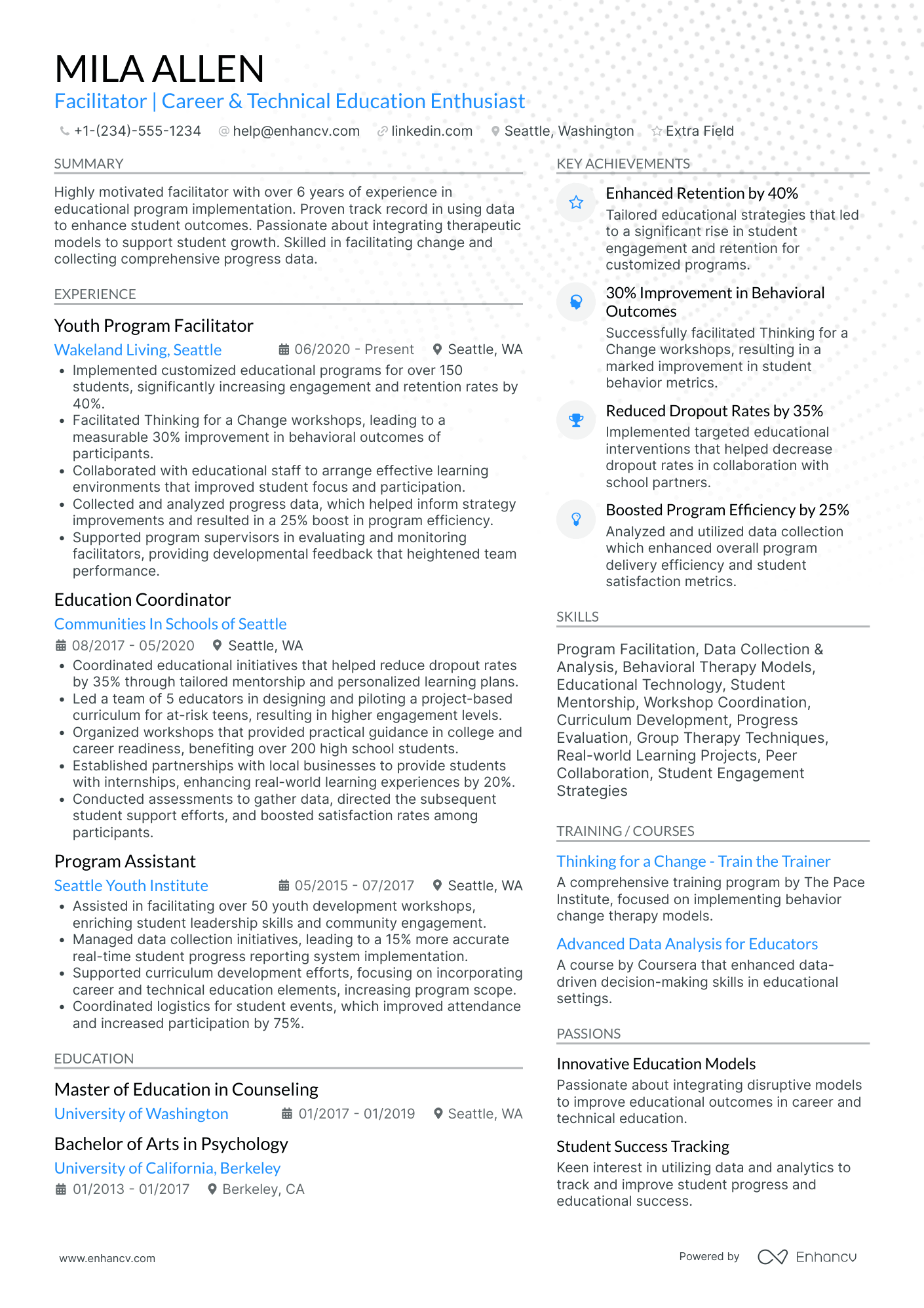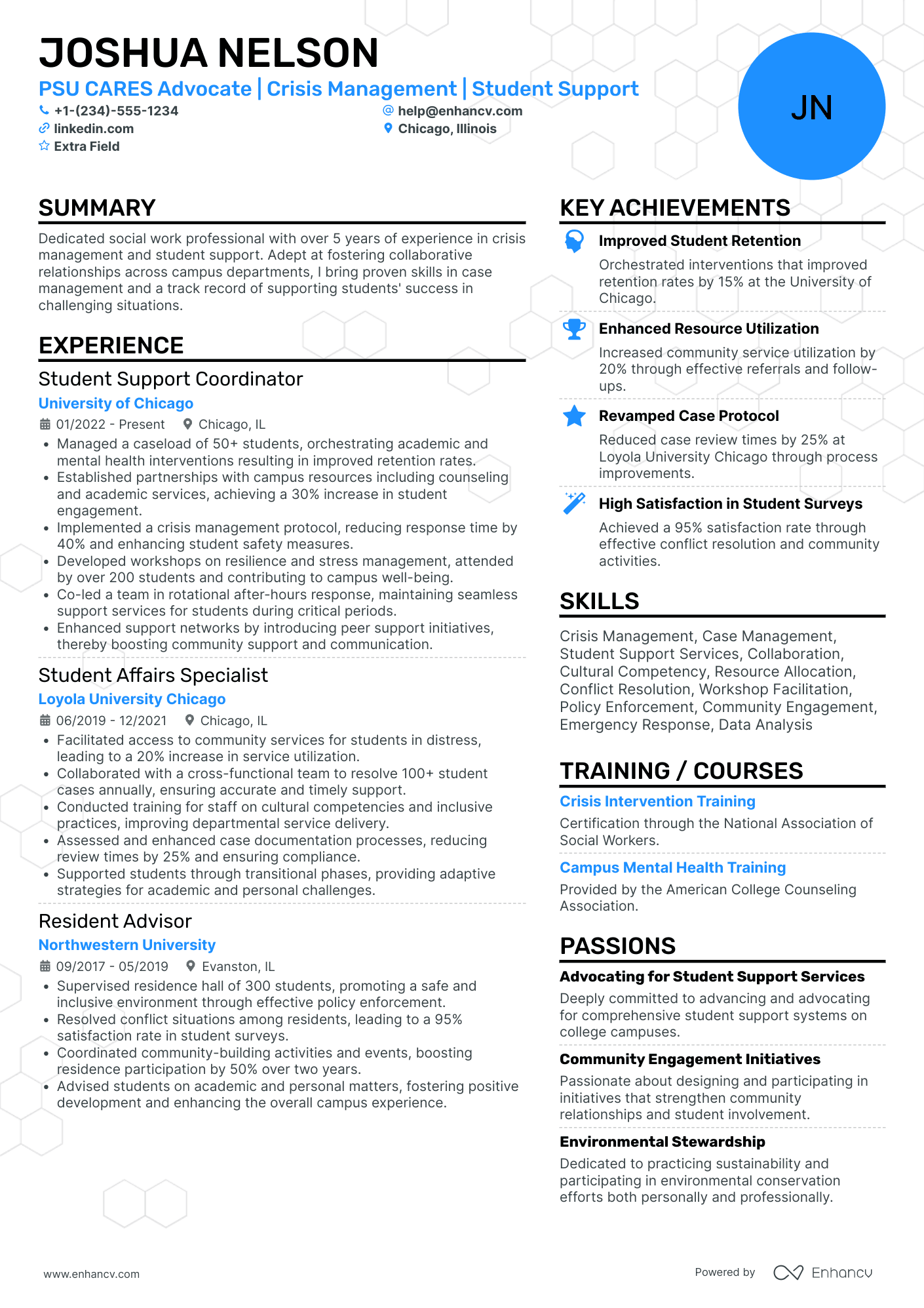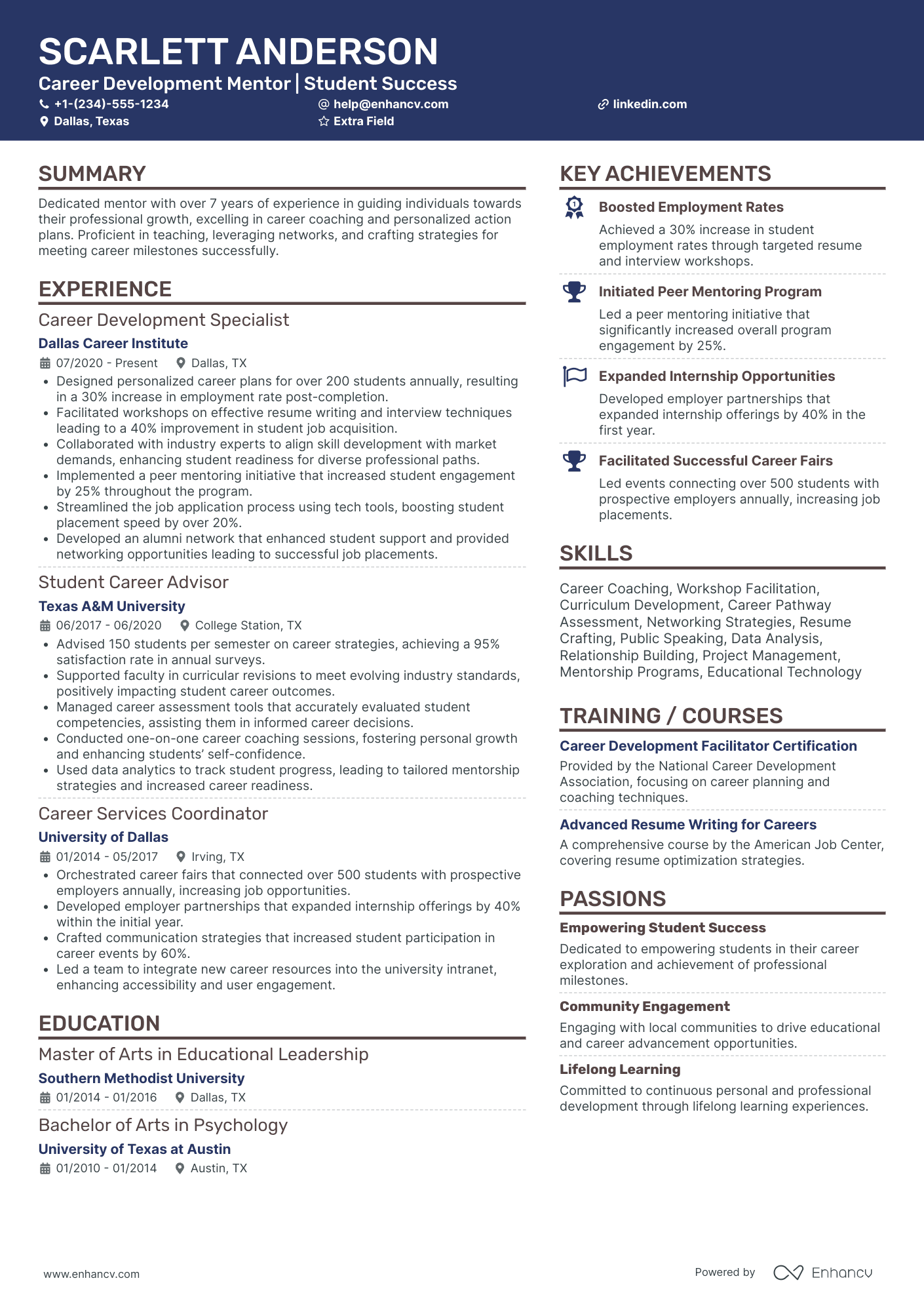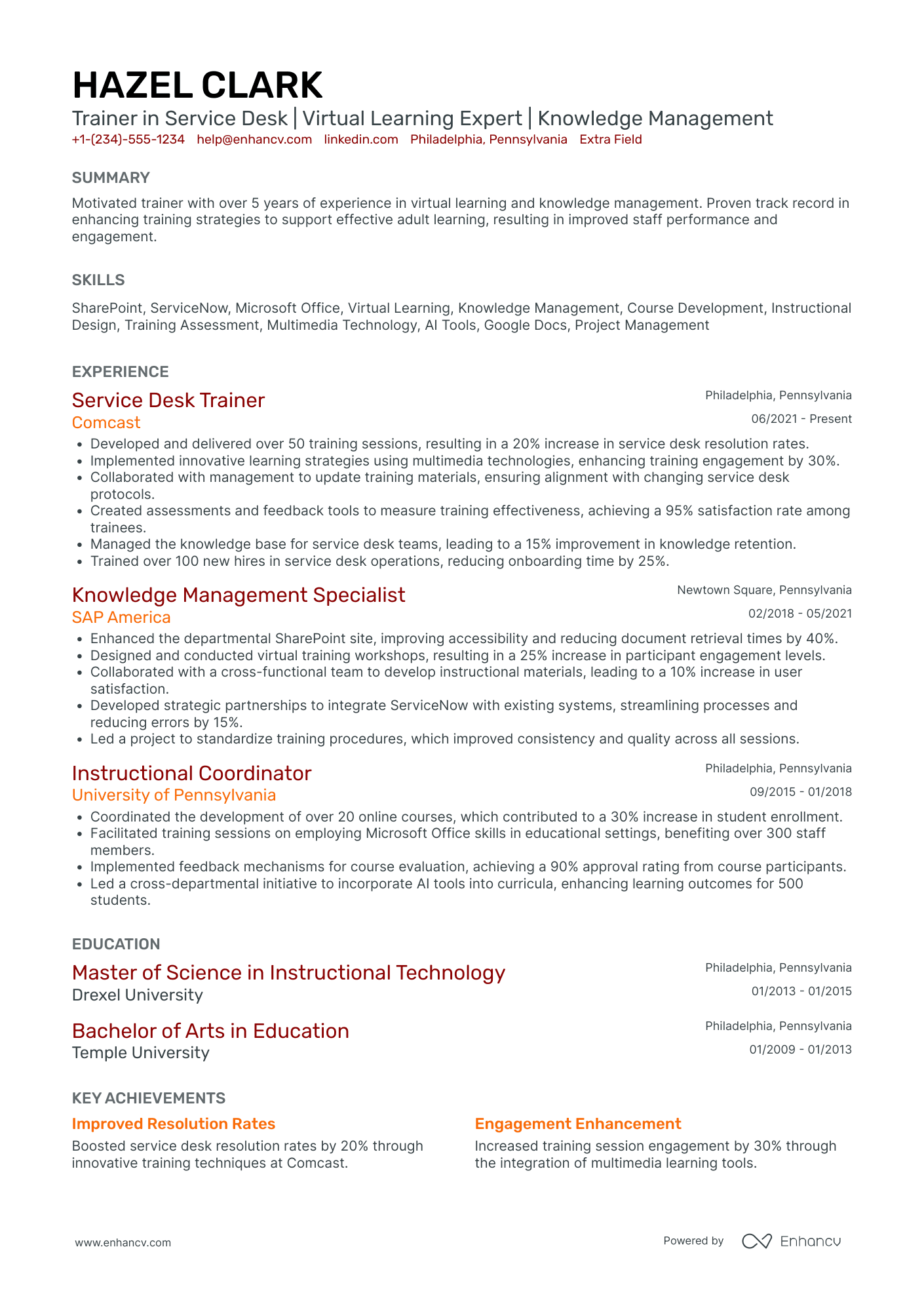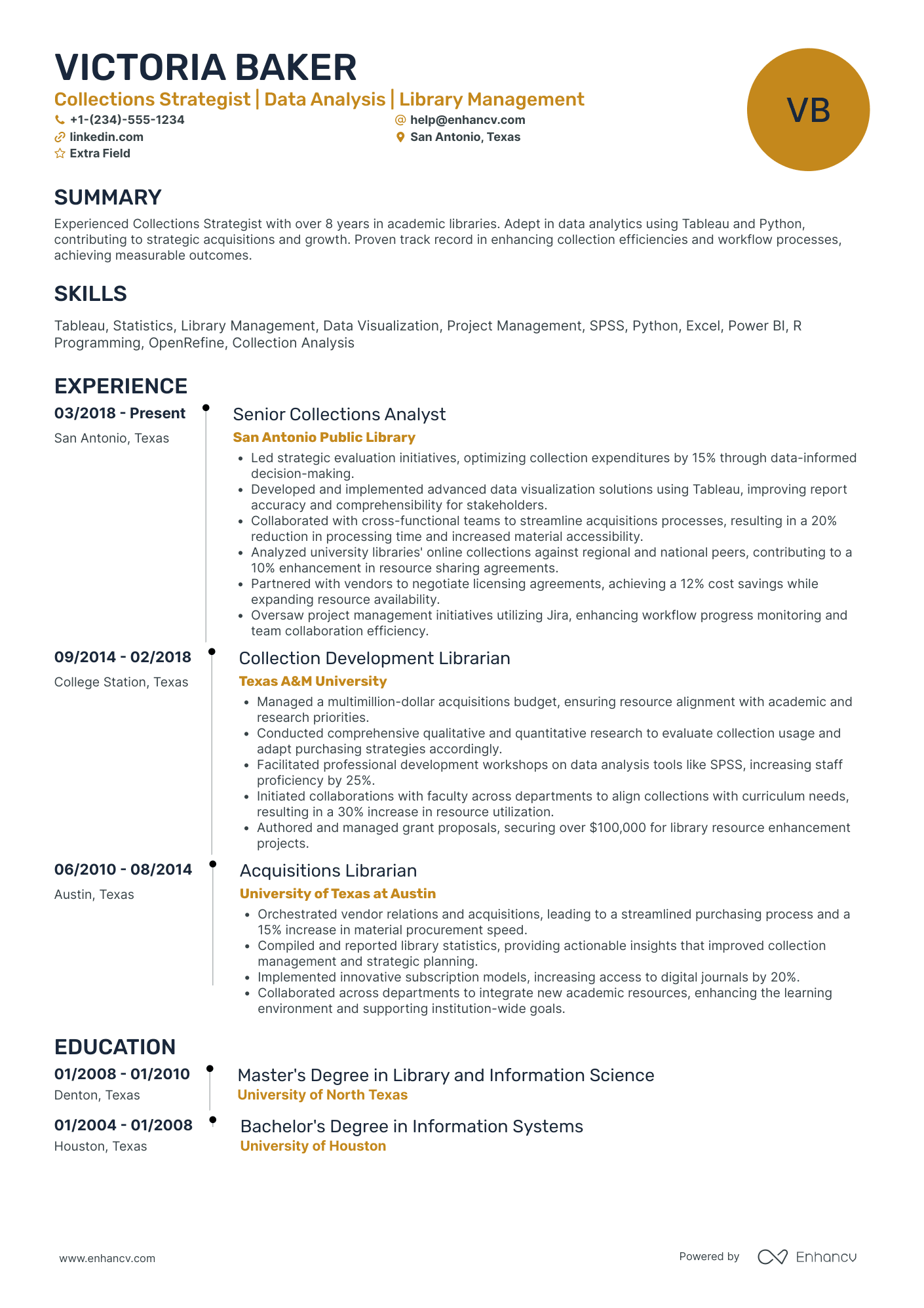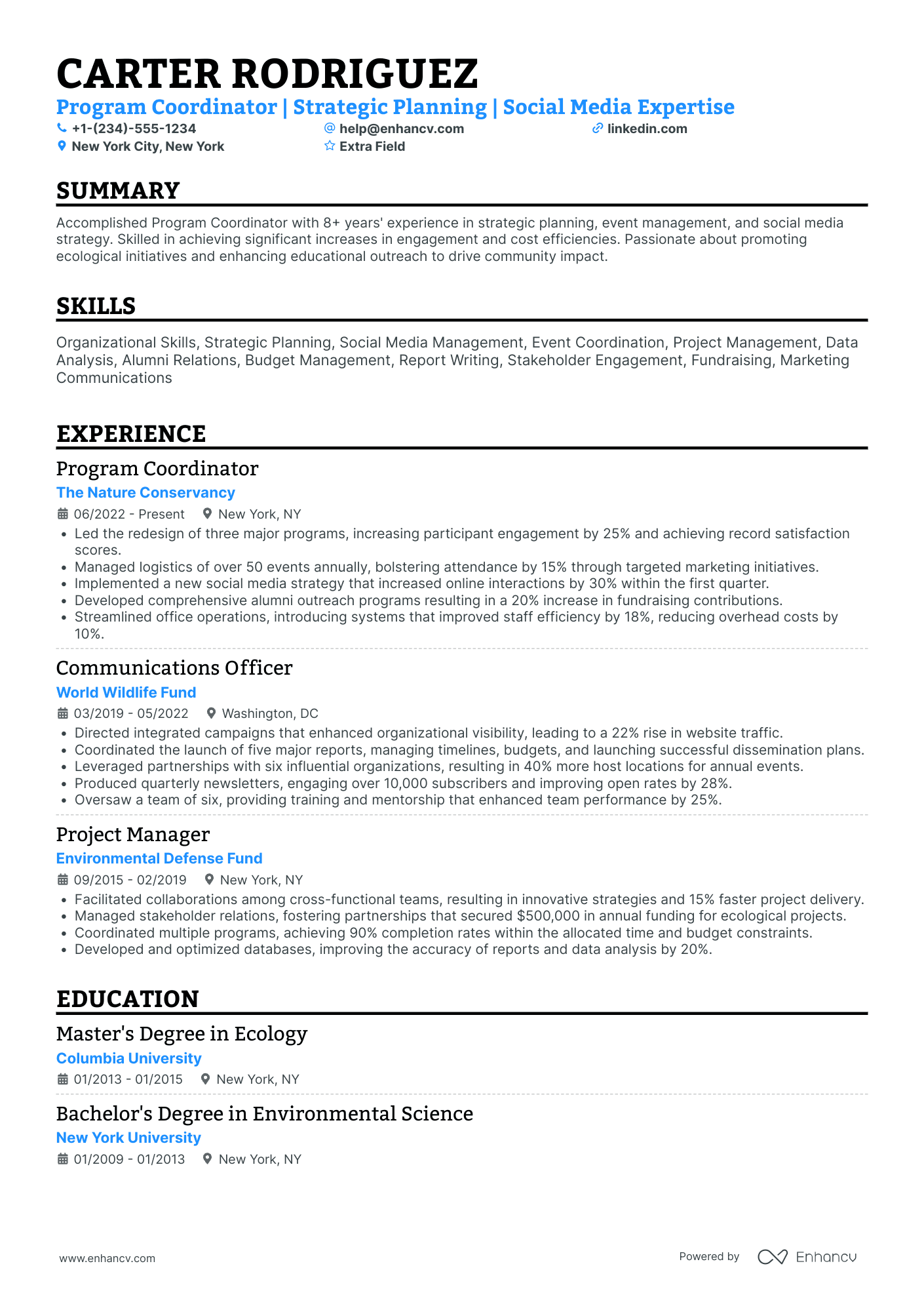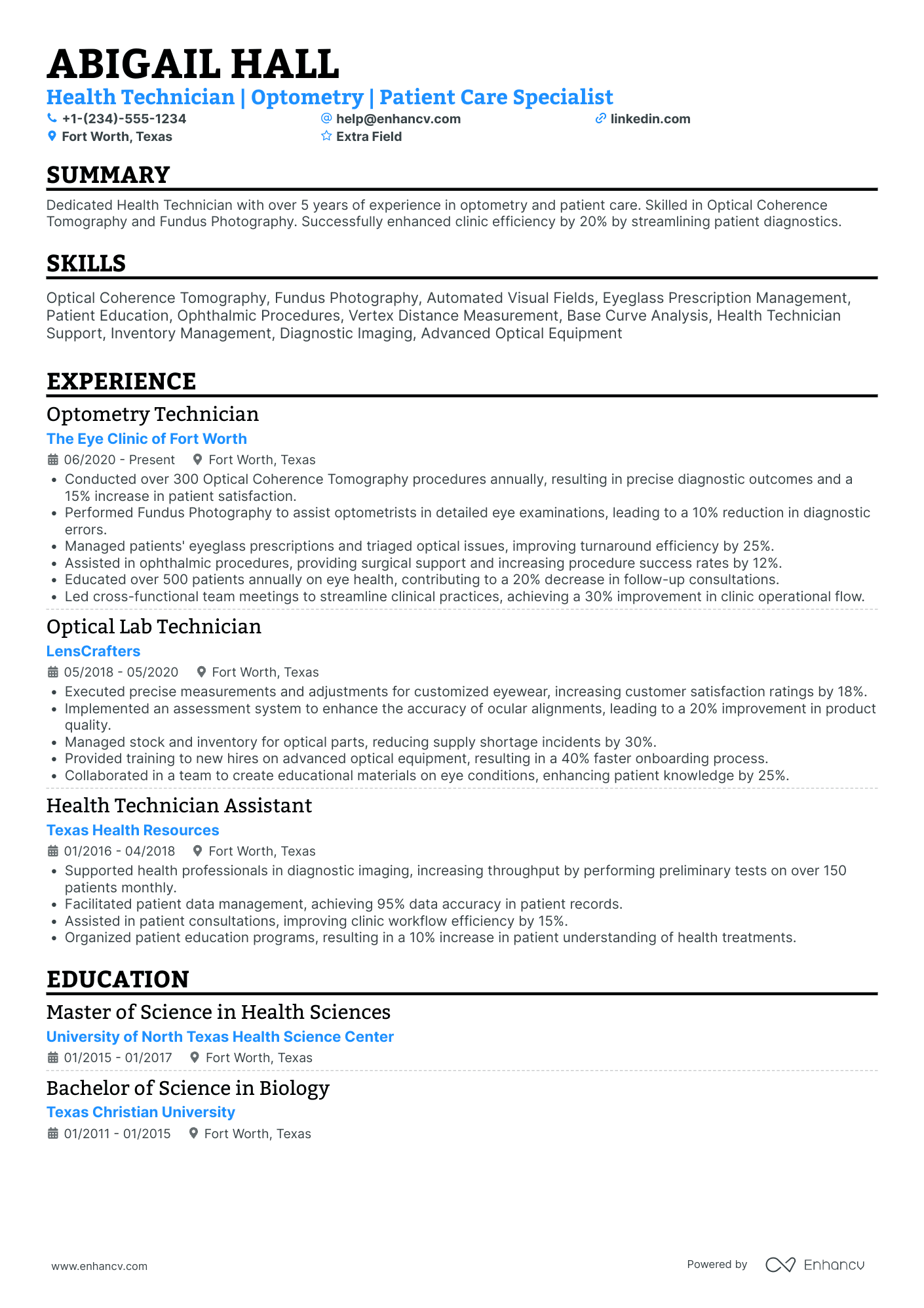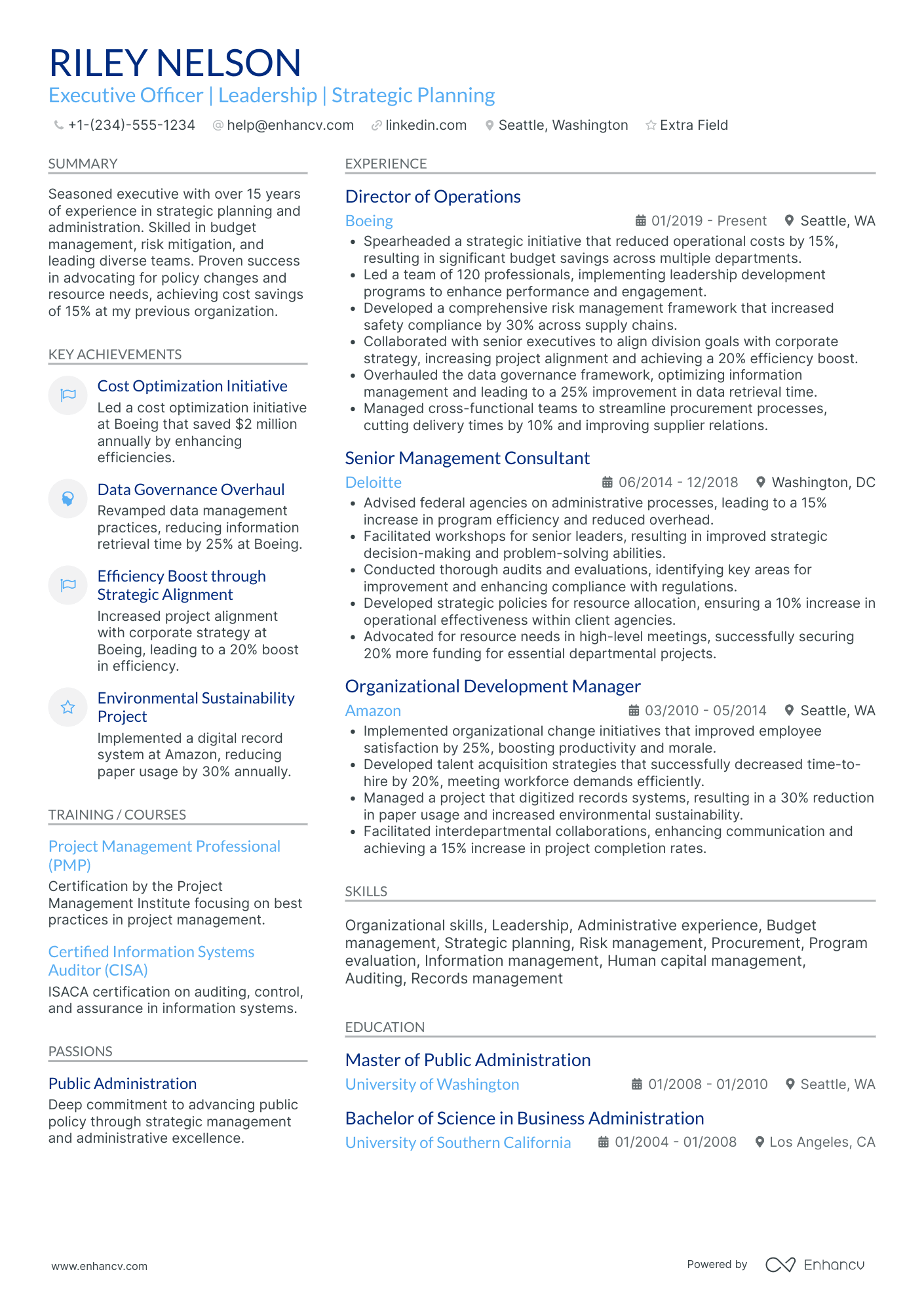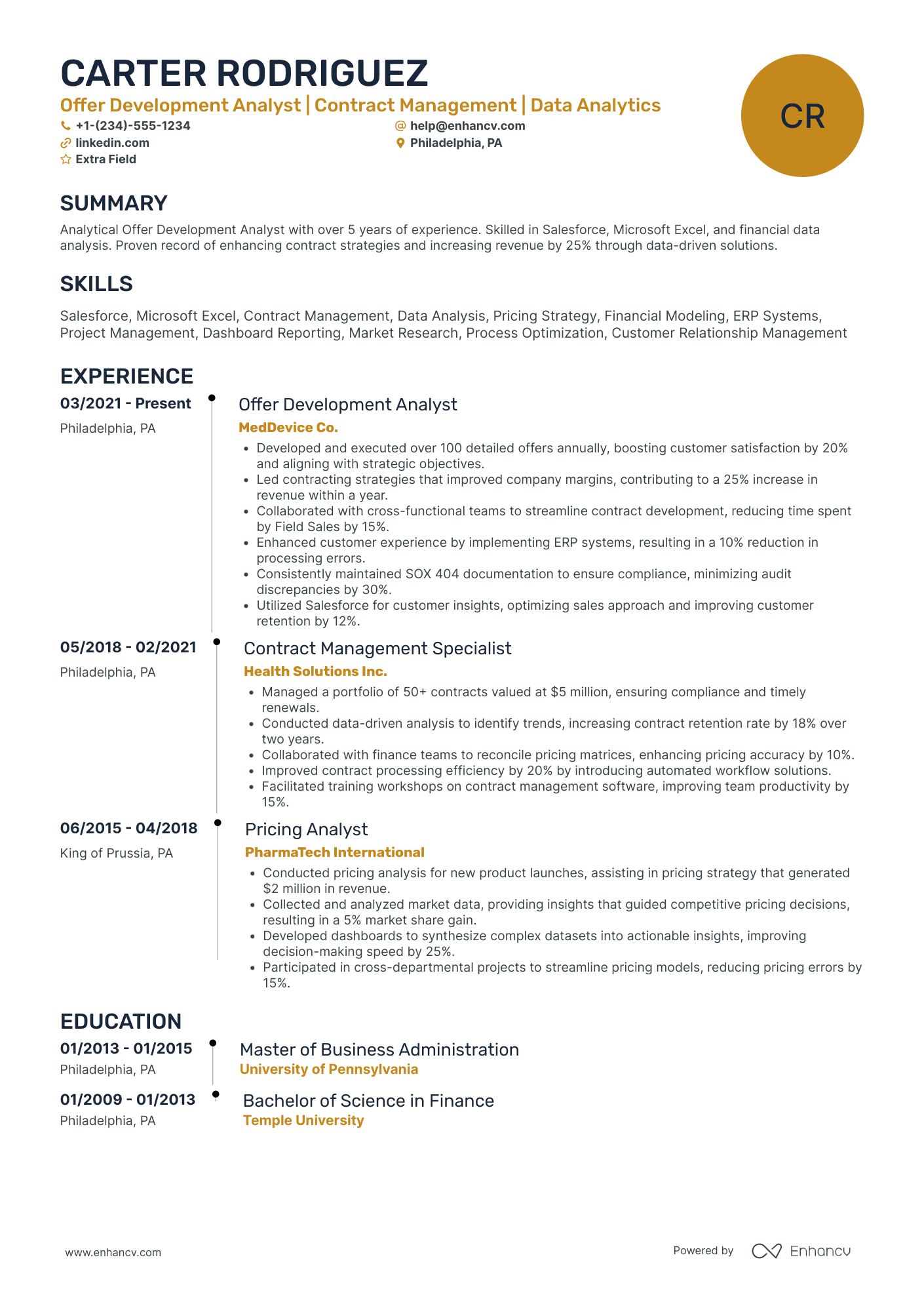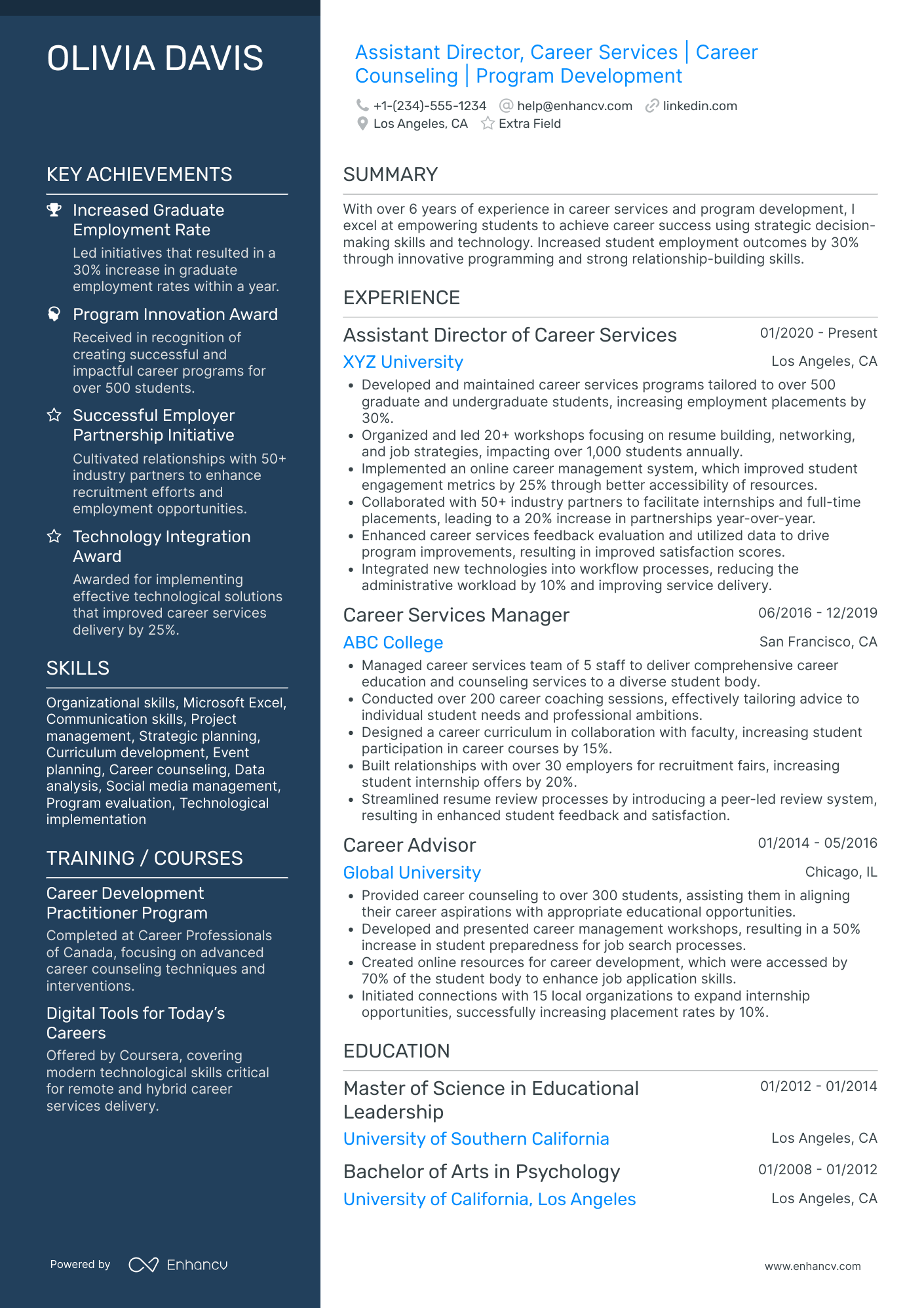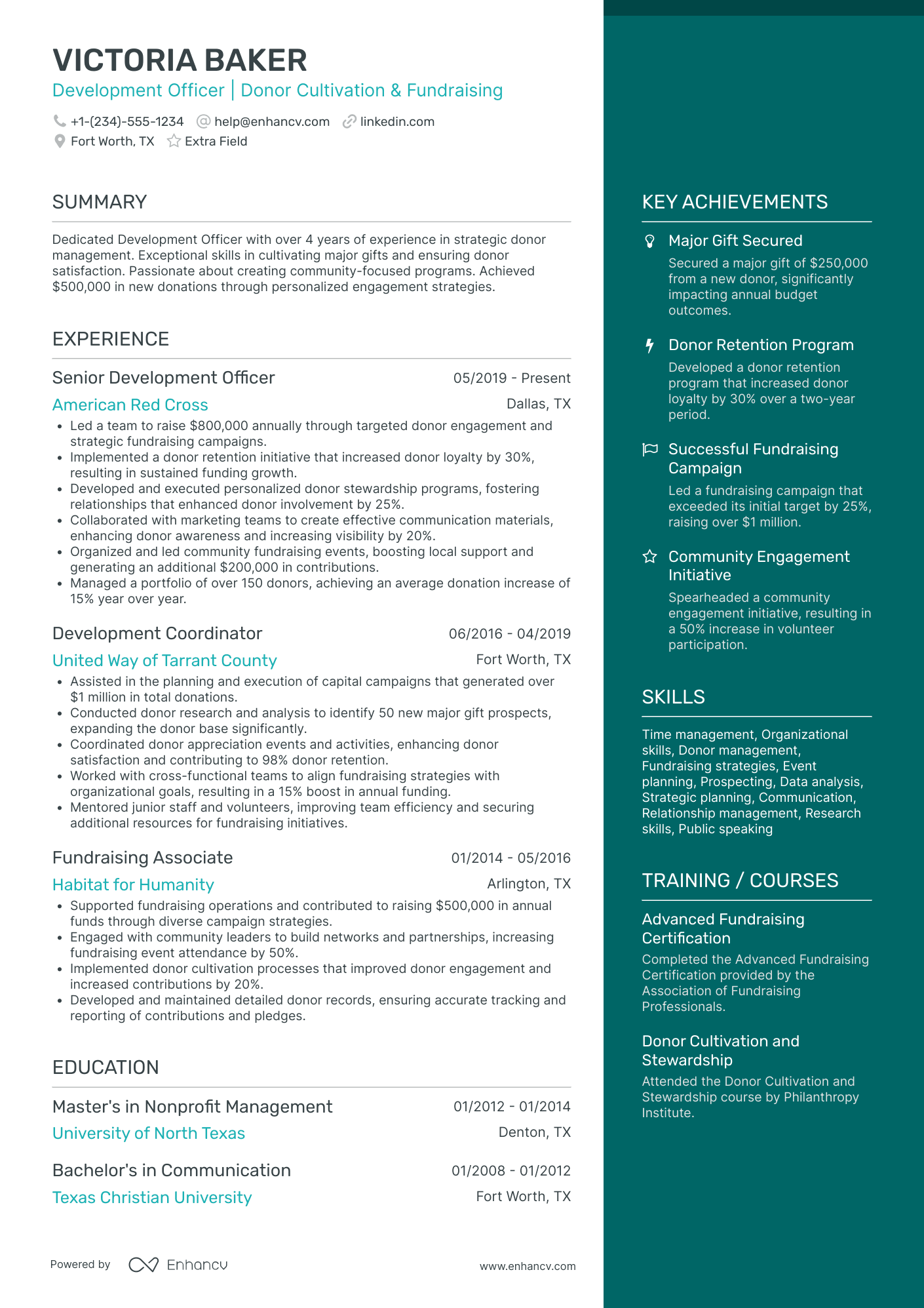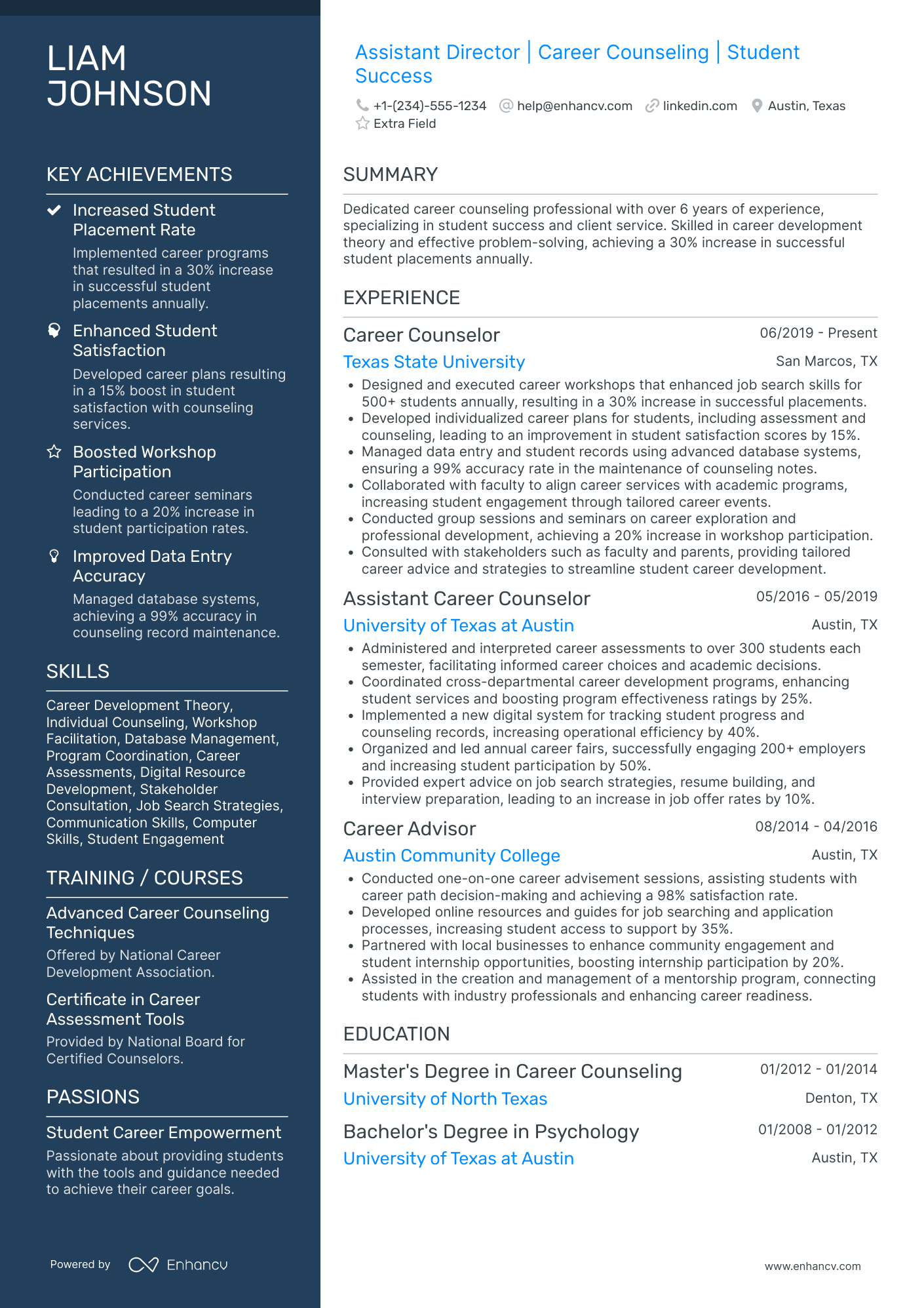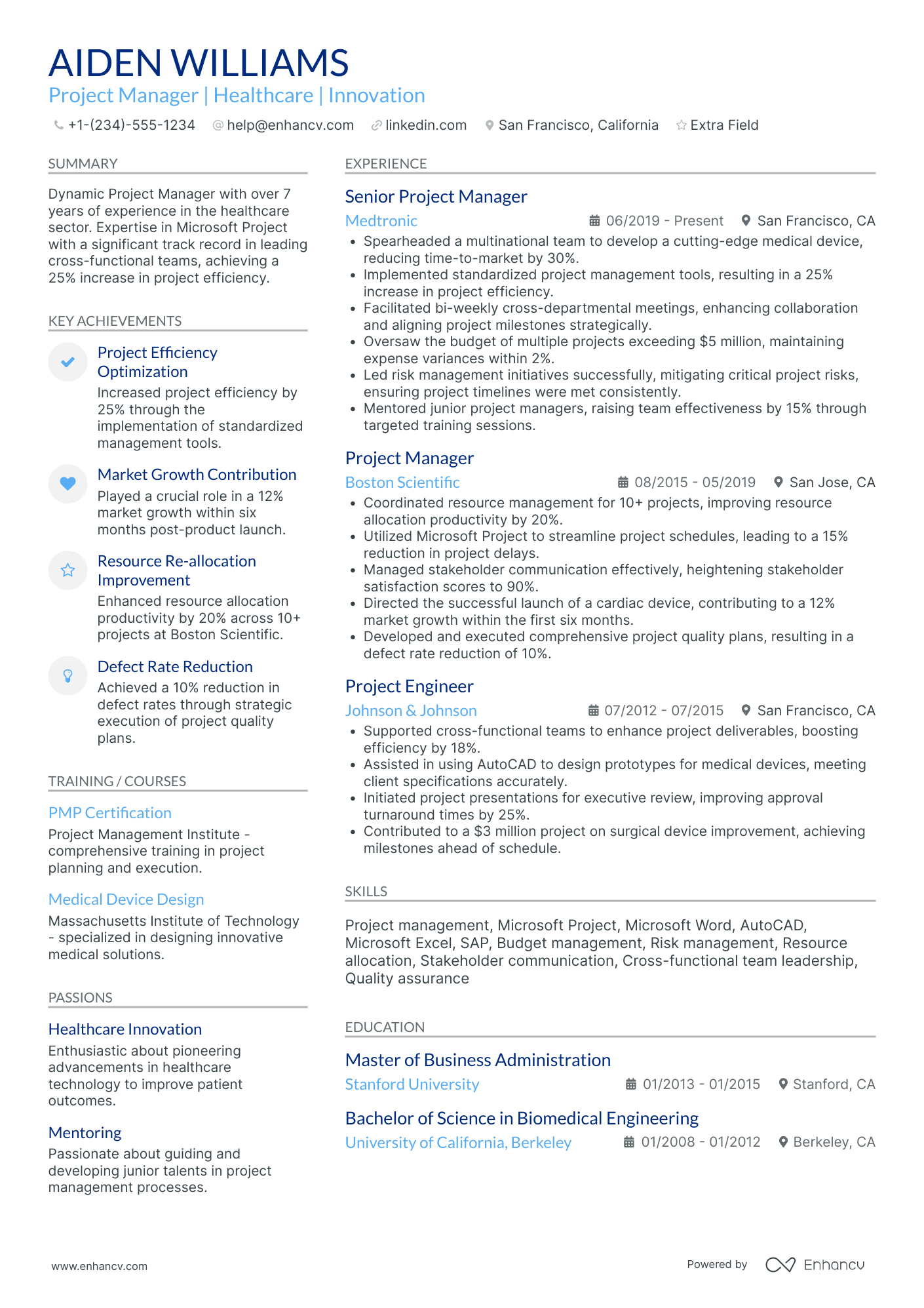Embarking on a career change is an exhilarating journey filled with opportunities for growth and discovery. Whether you're transitioning from healthcare to graphic design, from education to IT, or from hospitality to digital marketing, the process of reinventing your professional self can be both thrilling and challenging. Crafting a resume that captures your unique blend of skills and experiences is a critical step toward securing your dream job in a new field.
As you navigate this transition, it's essential to focus on the transferable skills that bridge your past and future careers. Highlighting your adaptability, problem-solving abilities, and lifelong learning mindset can make your resume shine, even if your direct experience in the new field may seem limited at first glance. It's about painting a picture of a candidate who is not only capable but eager to embrace new challenges and contribute meaningfully from day one.
A recent poll found that approximately half (52%) of American employees are considering making a career change this year. 44% are already planning to make the switch.
While the task may seem daunting, especially when trying to align your previous experiences with your new career goals, remember that your unique path adds value. Your diverse background brings a fresh perspective that can differentiate you from other candidates. Embrace the narrative of your career change with enthusiasm, focusing on how your journey has equipped you with a rare and valuable combination of skills.
Yes, there may be moments of doubt or hurdles along the way, such as mastering new industry jargon or gaining specific technical skills. Yet, with persistence, a willingness to learn, and a strategic approach to your resume, you're not just changing jobs—you're stepping into a future brimming with possibilities. Let your resume be a testament to your journey, an invitation for employers to be part of your exciting next chapter. Remember, every skill you've acquired, and every challenge you've navigated, has prepared you for this moment. Now, it's time to leap confidently into the new adventure that awaits.
Making a big life change is pretty scary. But, know what’s even scarier? Regret.
Zig Ziglar
Looking for some more information related to career change? Here are some further links that may be interesting for you:
- Career change Cover Letter Guide
- How to Write a career change Resume Summary
- LinkedIn Headline for career changers
- How to Answer the "Why Do You Want to Change Your Career Path" Interview Question
- Tried and Tested career change Resume Tips
- Which Resume is Considered Most Useful for Changing or Starting Careers
How to format a career change resume
The most effective way to format a career change resume is by using a combination or hybrid resume format as opposed to reverse-chronological or functional formats. This approach allows you to showcase your transferable skills and competencies upfront, followed by a reverse-chronological listing of your employment history.
Here’s why this format works best for career changers:
- Highlights transferable skills: Start with a strong summary or objective statement that articulates your career change goal and value proposition. Follow this with a skills section that highlights transferable skills relevant to the new field. This setup ensures that your applicable abilities capture the hiring manager’s attention first.
- Demonstrates relevant experience: After the skills section, include a "Relevant Experience" section where you can list any direct experience, projects, or roles (including volunteer work) that relate to your new career path, even if they weren't part of your main job duties previously.
- Includes professional experience: Continue with a reverse chronological order of your professional experience, focusing on achievements and responsibilities that demonstrate skills applicable to the new field. Use bullet points to quantify achievements and show how your work contributed to organizational goals.
- Education and continuous learning: Clearly list your educational background and any additional certifications or courses that are relevant to your new career. This shows your commitment to developing the necessary skills for the transition.
- Custom sections for extra impact: Depending on your unique situation, you might add sections for projects, certifications, or professional affiliations related to your new field. These can further demonstrate your interest and engagement with the industry you’re moving into.
Each market has its own resume standards – a Canadian resume layout may differ, for example.
PRO TIP
Remember, the key is to tailor your resume for each job application, emphasizing the skills and experiences most relevant to the job description. This targeted approach, combined with a hybrid format, can make your career change seem not just plausible but advantageous to potential employers.
It’s not all smooth sailing though.
The biggest challenges facing individuals making a career change resume
We have gathered several common issues that many career changers come across while creating a resume for a new position in a new field. Have a look before we go on to remedy them:
- Writing a compelling career objective: career changes often necessitate a brand new objective or personal statement at the top of the resume. The challenge is making this compelling and convincing to prospective employers.
- Translating skills and experiences to fit the new industry: Many skills learned in one profession may be transferable to another. The challenge is translating these applicable skills on paper in a way that the hiring manager from the new industry can appreciate and value.
- Understanding industry jargon: Different professions have different vocabularies. Making a career change may mean encountering unfamiliar terms, tools, or protocols. Without a good understanding, it can be a challenge to create a resume that speaks to the specific needs of the industry.
- Using relevant job posting websites: Every industry has its specific job boards. If switching from tech to finance, for example, platforms like Dice or TechCrunch might not be as relevant as eFinancialCareers or Wall Street Oasis.
- Identification of relevant further training or certification programs: Depending on the industry you're moving into, you may need to highlight in your resume relevant qualifications or certifications that demonstrate your dedication and eligibility.
Here are the most important sections you’ll be focusing on while crafting your next resume.
The top sections on a career change resume
- Objective or professional summary: It helps recruiters understand your career intent and how it aligns with the role.
- Skills: This section helps showcase your capabilities and proficiencies, as they relate to your new career path.
- Relevant training and certifications: Detail any training you've taken or certifications earned to show you're acquiring the necessary skills for the new job.
- Transferable experience: Highlight your past experiences that apply to the new role, showing you have a relevant background.
- List of references: It adds credibility and allows recruiters to verify your skills and capabilities.
It’s not all about format, it’s about content, too. Throughout your resume aim to communicate and demonstrate the following elements.
What recruiters want to see on your resume
- Relevant skills: These are prioritized to see if you possess the necessary capabilities for the role you're transitioning to.
- Transferable skills: Recruiters look for these to gauge if previous experiences can benefit the current role.
- Willingness to learn: Emphasizing this shows your initiative and drive, crucial for someone changing careers.
- Networking connections: If you have connections in the new field, it may indicate a smoother transition.
- Career change rationale: Your reasons for changing careers are crucial; they can demonstrate your commitment to the new path.
How to write your career change resume experience
This can be the trickiest section for anyone changing careers. When writing the work experience section on a career change resume, focus on transferable skills that align with the new role.
Unlike a regular resume, you need to:
- Emphasize how your past experiences, though in different industries, have equipped you with skills relevant to the new job.
- Highlight achievements and tasks that demonstrate universal competencies like leadership, problem-solving, and communication.
- Use action verbs and quantify achievements to show impact.
- Tailor each entry to reflect how your background is an asset to the new field, making connections between your past roles and your future career goals clear and compelling.
Let’s take a look at one possible experience entry and how to direct it towards a career change.
- •Spearheaded a team of 10, enhancing team productivity by 25% through strategic leadership and effective communication skills.
- •Implemented a customer feedback system that reduced response times by 30%, demonstrating keen problem-solving abilities and a focus on efficiency.
- •Led cross-functional training programs that improved team adaptability and technical knowledge, showcasing an ability to educate and empower others.
- •Negotiated with suppliers to reduce costs by 15%, highlighting strong negotiation and financial management skills.
So although the actual position may not be related the skills are. They highlight transferable skills like leadership, efficiency, problem-solving, and financial savvy, making the candidate's experience
How to quantify impact on your resume
On a career change resume, quantifying impact, once again, involves highlighting accomplishments that demonstrate transferable skills and relevance to the new field, similar to a regular resume but with a focus on universality and adaptability.
Here’s how:
- Use numbers and percentages: Just like on any resume, include data and metrics to quantify your achievements. For example, "Increased sales by 20%" or "Reduced customer complaints by 30%."
- Emphasize transferable outcomes: Choose metrics that showcase results relevant to your desired field. For instance, if moving to project management, highlight achievements in organization, leadership, and efficiency, like "Managed a team of 5" or "Completed projects 10% under budget."
- Highlight efficiency improvements: Demonstrate how you made processes more efficient or saved time/money, as these are universally appreciated skills. For example, "Streamlined inventory management, saving 5 hours weekly."
- Focus on problem-solving: Quantify your impact by showing how you addressed and solved problems, "Resolved a recurring issue, improving customer satisfaction by 25%."
The key difference is ensuring that the way you quantify your achievements not only reflects success in your past roles but also aligns with the priorities and values of your new industry, demonstrating your potential for impact even without direct experience.
How to list your hard and soft skills on your resume
In the skills section of your resume prioritize transferable ones. List hard skills relevant to the new field first, followed by soft skills demonstrating adaptability and potential. Unlike a regular resume, emphasize how each skill applies to the new industry, even if acquired in a different context.
Hard skills are technical abilities or knowledge learned through education or training, specific to a job (e.g., software proficiency).
Examples of transferable hard skills for a career change resume
- Technical proficiency: Skills in software and applications relevant across industries, such as Microsoft Office, Adobe Creative Suite, or programming languages.
- Data analysis: The ability to collect, analyze, and interpret data, using tools like Excel, SPSS, or Google Analytics.
- Project management: Experience with project management methodologies and tools, such as Agile, Scrum, or project management software like Trello or Asana.
- Foreign languages: Proficiency in additional languages can be a significant asset in many fields.
- Financial literacy: Skills in budgeting, financial forecasting, and using financial software.
- Digital marketing: Knowledge of SEO, content marketing, social media marketing, and using platforms like Google Ads or Facebook Business Manager.
- Technical writing: The ability to produce clear, concise, and useful documentation and reports.
Soft skills are interpersonal attributes and traits that affect how well you can work or interact with others (e.g., communication, teamwork).
Examples of transferable soft skills for a career change resume
- Communication: Effective verbal and written communication skills.
- Problem-solving: The ability to identify problems and find effective solutions.
- Adaptability: Being able to adjust to new environments and challenges.
- Teamwork: Working well with others towards a common goal.
- Team leadership: The ability to lead and motivate others.
- Time management: Efficiently managing your time to meet deadlines.
- Emotional intelligence: Understanding and managing your emotions and those of others.
- Critical thinking: Analyzing information and making reasoned decisions.
- Creative thinking: Generating innovative ideas and solutions.
- Interpersonal skills: Building and maintaining strong work relationships.
How to list your certifications and education on your resume
Properly listing certifications and education on your resume is crucial for career changers for several reasons.
On a regular resume, education, and certifications complement your work experience directly related to the job. For career changers, these sections are critical to highlight transferable skills and new knowledge that align with the career shift.
By strategically presenting your certifications and education, you can bridge the gap between your past career and your desired new path, making it easier for employers to see how your background equips you for a successful transition.
Here’s what you should consider while you list them:
- Prioritize relevance: List the most relevant education and certifications near the top of your resume. If you've taken courses or earned certifications specifically for your new career, highlight these first.
- Include details: For each certification or course, include the name of the certification/course, the issuing organization, and the date of completion or expiration. For education, include your degree, field of study, and the institution.
- Explain relevance: Briefly mention how specific certifications or aspects of your education are relevant to the new field, especially if it’s not immediately obvious. This can be done in a short bullet point or parenthetical note.
It’s time to explore perhaps the most essential element of your career-changer resume—the resume profile.
How to write your career change resume summary or objective
The resume summary or objective statement is crucial on a career change resume as it immediately clarifies your intent to shift fields and highlights your transferable skills and motivation.
A resume summary highlights your top achievements, skills, and experience relevant to the job, aimed at experienced professionals. An objective statement outlines your career goals and what you aim to achieve in the role, often used by new graduates or those changing careers, focusing on how they can benefit the employer.
For a career change, focus on crafting a compelling objective statement that outlines your career goals, why you’re transitioning, and how your existing skills and experiences align with the new field.
Include specifics about your professional background, emphasize your eagerness to learn, and mention any relevant skills or training you have undertaken to prepare for the change. This approach personalizes your application and demonstrates your commitment to the new career path.
Below you can see an example of an effectively written objective statement doing just that.
This is what’s done right:
- Clear transition: It explicitly states the shift from healthcare to tech, guiding the employer through the career change narrative.
- Highlights transferable skills: The statement emphasizes skills like project management and communication that are valuable in both sectors.
- Demonstrates enthusiasm: Shows eagerness to contribute to the new field, which can be compelling to potential employers.
- Focuses on contribution: It's oriented towards how the candidate can benefit the new industry, not just what they wish to gain.
PRO TIP
Tailor your objective statement to the specific job and industry you’re targeting by incorporating keywords from the job description. This customization not only shows your genuine interest in the role but also helps your resume pass through Applicant Tracking Systems (ATS), making it more likely to reach the hiring manager.
Optimize your resume summary and objective for ATS
Drop your resume here or choose a file.
PDF & DOCX only. Max 2MB file size.
Key takeaways
Crafting a career change resume is a strategic endeavor that highlights your transferable skills, showcases your adaptability, and demonstrates your passion for a new field. With careful tailoring and a focus on your unique journey, your resume can open doors to exciting opportunities and mark the beginning of a fulfilling new chapter.
Here are some key takeaways from our article:
- Focusing on transferable skills is crucial for a career change resume.
- A combination or hybrid resume format is most effective for career changers, allowing them to showcase transferable skills and relevant experience up front.
- Including a clear objective statement helps articulate career change intentions and how past experiences align with new roles.
- Translating skills to fit the new industry, understanding jargon, using industry-specific job boards, and identifying relevant training are common challenges.
- Demonstrating suitable skills, related experiences, willingness to learn, and networking connections are key.
- Hard skills like technical proficiency and soft skills such as communication are equally valuable in new careers.
- Education and certifications should be listed with relevance to the new field in mind, showing commitment to transitioning successfully.
Career Change resume examples
By Role
